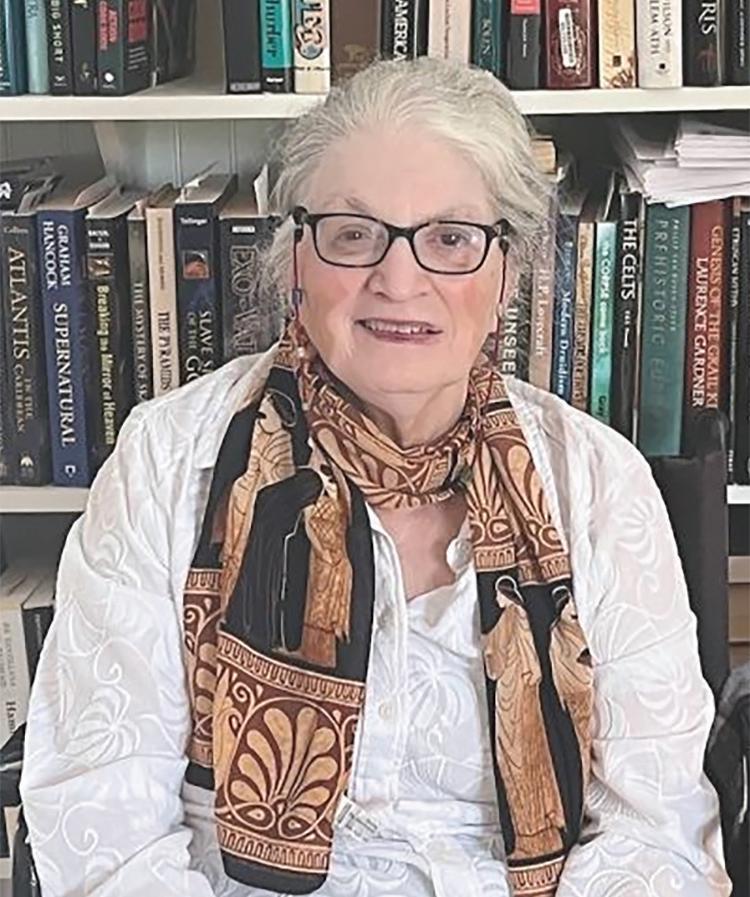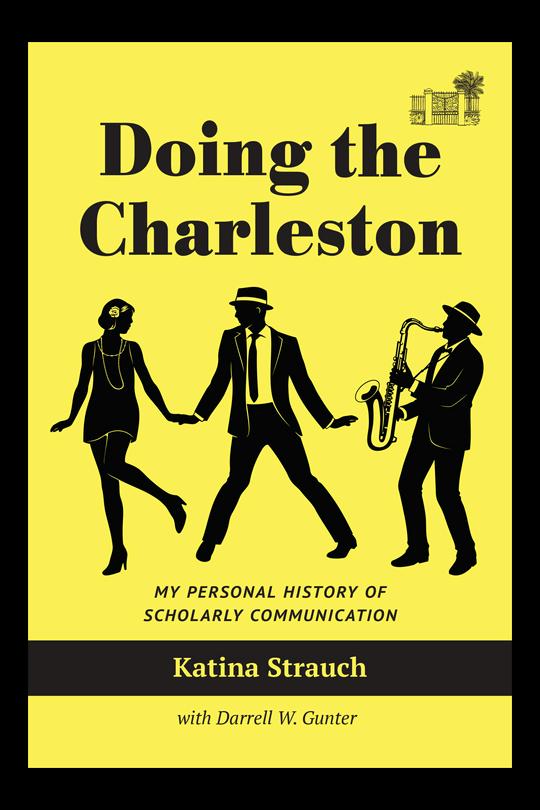
6 minute read
Innovator’s Saga — An Interview with Katina Strauch
Column Editor: Darrell W. Gunter (President & CEO, Gunter Media Group)
DARRELL GUNTER: Katina, let’s start at the beginning. The Charleston Conference didn’t exactly have the smoothest launch, did it?
KATINA STRAUCH: (laughs) No, it didn’t. First came the hurricane — and that certainly didn’t help. Hurricane Hugo hit us in 1989, and it was just awful. Charleston looked like a ghost town. At the time, we were living at the Citadel, and I remember the president inviting everyone to the mess hall because so many of us had nothing — no electricity, no phones, no way to communicate. It was eerie. It took two whole months before life began to feel normal again. That was a huge challenge.
Then came the antiquarian book fair — our first one. It was fascinating in its own way. We dove into rare books, learning their history and value, but it wasn’t quite what I envisioned. My real goal was to create something different — an event that brought publishers, vendors, and librarians together.
DG: Right, right — absolutely. The Charleston community and the College of Charleston weren’t just bystanders; they played a real supporting role. From your perspective, how did they step in?
KS: I started the conference through continuing education at the College. The dean at the time, Sue Summerrest — she’s still around — was incredibly supportive. I had to fill out all the paperwork and go through the process, but she made it easy. It was mutually beneficial — she wanted to grow her program, and I wanted to grow mine. We helped each other.
DG: And I imagine the city of Charleston noticed the economic boost — hotel bookings, restaurant traffic… Did they ever give you an official “thank you” for that?
KS: (smiles) No official accommodation. But that’s okay. The conference is popular enough now that it’s a benefit to everyone.
DG: When you think about all the conference has achieved, what are the three things you’re most proud of?
KS: First, that it’s continued this long. Second, that it’s brought together such a diverse group — publishers, vendors, and librarians — and stayed popular. And third, that after selling it to Annual Reviews, they’ve kept it going exactly the same. That means a lot to me.
DG: And they’re expanding into Asia, right? Bangkok?
KS: Yes, Bangkok. I wish I could go in person, but I’ll be there virtually.
DG: You’ve also had a strong right-hand in Leah Hinds.
KS: She’s fabulous. I hired her when she was in her twenties, and now she’s the executive director. She’s got the energy to keep going for a long time. She’s also started the Charleston Frankfurt Conference at the Frankfurt Book Fair.
DG: And of course, you’ve always had a knack for bringing people together for real dialogue. How did you manage to make that happen when other conferences couldn’t?
KS: I’ve never believed in compartmentalizing people. We’re all talking about the same things — just from different perspectives. So why not talk together? I was young and maybe a little naive, but it worked. continued on page 75
DG: And that’s where the exhibit hall came in.
KS: Exactly. Some people didn’t like the idea of exhibits at first, but people wanted a place to keep the conversation going. It worked because it’s what they wanted.
DG: One thing that stands out is your “don’t say no” philosophy.
KS: That’s true. If someone had an idea, I’d try to make it work. Why not give it a chance?
DG: That openness has brought in things like the Innovator Sessions and the Charleston Premiers — ideas that came from outside but fit perfectly into the conference.
KS: Yes. I like to look at every point of view. If something works, it works — doesn’t matter where it started.
DG: The industry has changed so much since 1980 — open access, budget cuts. How has the conference responded?
KS: By being flexible. We have to change with the times and deal with challenges as a group.
DG: Looking back, what surprised you most while writing “Doing the Charleston”?
KS: That eBooks took off the way they did. I’ve always loved print books. And now there’s AI — ChatGPT. I’m still not sure how I feel about it.
DG: When someone reads your book, what do you want them to take away?
KS: Don’t give up. If you have an idea, keep going — even if not everyone likes it.
DG: That’s great advice. Speaking of stories — tell me about your attempt to interview Robert Maxwell.
KS: (laughs) Oh, I went to England thinking I could just walk in and talk to him. I never met him, but I did meet some fascinating people — Brian Cox among them.
DG: You’ve known so many people over the years.
KS: Yes, and I’ve always believed everyone has something interesting about them if you take the time to find it.
DG: That’s the spirit of the Swamp Fox bar during the conference — where deals were made, jobs offered, and ideas exchanged.
KS: Exactly. And there’s no rulebook for this. You have to follow your gut, listen more than you talk, and be willing to try new things.
DG: If the Charleston Conference had a theme song, what would it be?

KS: “Come Together” by the Beatles. Jack Montgomery even wrote a song for the conference once — I hope we can find that recording again.
DG: You’ve stepped back from day-to-day management, but you’re still involved.
KS: Leah doesn’t need me — she’s doing a fabulous job — but she still checks in now and then.
DG: You’re also launching Beña Publishing.
KS: Yes, a small southern publishing company. If people have book ideas, I’d love to hear them. We’ll consider anything interesting.
DG: As you look at AI, fads, and real change — what’s your advice to the next generation?
KS: Be open, but be discerning. Not everything new is worth chasing. And listen — to colleagues, to your community. Listening is more valuable than talking.
DG: Katina, thank you. Your story is an inspiration, and your work has brought our community together in ways that will last for decades.
KS: Thank you, Darrell. And thank you for everything you’ve done for the conference and for the book.









